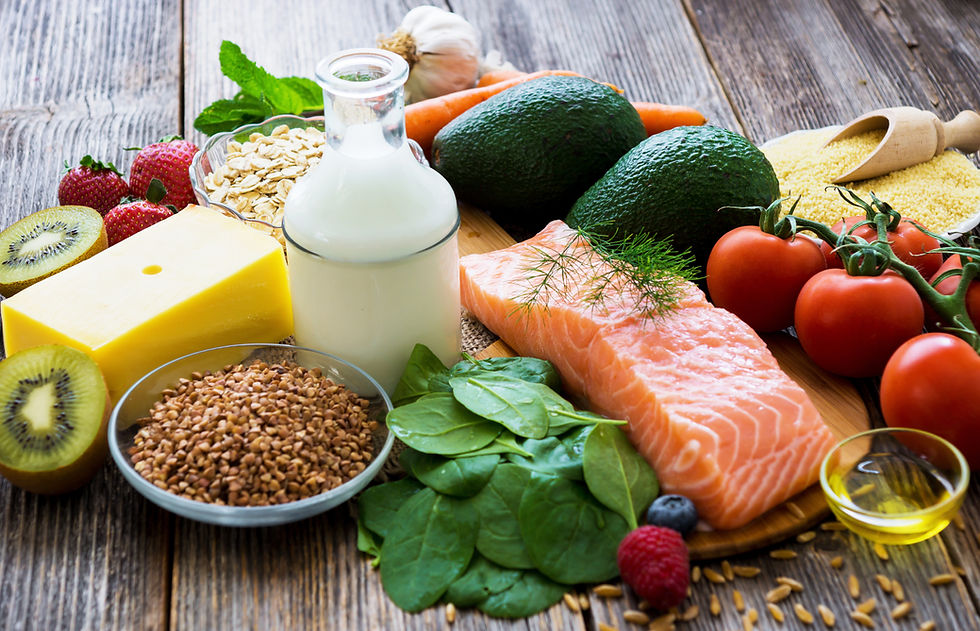Fueling Your Game: 6 Nutrition Tips for Volleyball Players
- braedonjon
- Nov 5, 2023
- 2 min read
When it comes to excelling in any sport, including volleyball, athletes need more than just skill and determination; they need the right fuel to power their bodies and minds. Nutrition plays a pivotal role in enhancing athletic performance, and for volleyball players, it can be the key to spiking, diving, and blocking their way to victory. In this blog post, we'll explore the significance of nutrition and dietary habits in optimizing volleyball performance.

Energy Boost and Endurance:
Volleyball is a high-intensity sport that demands bursts of energy, quick reflexes, and sustained endurance. Proper nutrition ensures a sufficient supply of carbohydrates, the body's primary energy source. Complex carbohydrates like whole grains, fruits, and vegetables release energy slowly, providing athletes with a steady stream of fuel throughout the game. This sustained energy is vital for players to maintain their performance levels from the first serve to the final match point.
Muscle Strength and Recovery:
Proteins are the building blocks of muscles. Volleyball players, like all athletes, need an adequate intake of high-quality proteins to repair and strengthen their muscles. Incorporating lean meats, fish, eggs, dairy products, legumes, and nuts into their diet helps in muscle recovery and development. Amino acids from proteins also aid in reducing muscle soreness and promote faster healing after intense training sessions and matches.
Hydration:
Staying well-hydrated is non-negotiable for athletes. Volleyball players lose a significant amount of fluids through sweat during practices and matches. Dehydration can impair physical performance, coordination, and concentration. It's essential for players to drink water and electrolyte-rich fluids before, during, and after games to maintain proper hydration levels and prevent cramps and fatigue.
Mental Agility and Focus:
Nutrition doesn’t just impact the body; it also influences the mind. Consuming a balanced diet that includes vitamins, minerals, and antioxidants supports cognitive function, ensuring players remain mentally sharp on the court. Foods rich in omega-3 fatty acids, such as fish and nuts, have been linked to improved brain function, enhancing reaction time, decision-making, and focus during intense gameplay.
Injury Prevention:
A well-balanced diet strengthens the immune system and supports bone health, reducing the risk of injuries. Adequate calcium and vitamin D intake are crucial for maintaining strong bones and preventing fractures. Additionally, antioxidants found in fruits and vegetables help in reducing inflammation, aiding in the body’s natural recovery processes after injuries and intense workouts.
Optimal Body Composition:
Maintaining an appropriate body composition is vital for volleyball players. Proper nutrition, coupled with regular exercise, helps athletes achieve and maintain a healthy weight and body fat percentage. This not only improves performance but also reduces the risk of chronic diseases, ensuring a longer and more successful athletic career.
In conclusion, the importance of nutrition and dietary habits in optimizing volleyball performance cannot be overstated. By fueling their bodies with the right nutrients, volleyball players can enhance their energy levels, boost endurance, strengthen muscles, maintain mental focus, prevent injuries, and achieve their optimal body composition. A well-balanced diet, combined with hydration and adequate rest, is the winning formula that empowers athletes to reach their full potential on the volleyball court.
So, whether you're a professional volleyball player or an aspiring athlete, remember that what you put into your body significantly impacts what you get out of it. Embrace the power of nutrition, and you'll be one step closer to spiking your way to victory!




Comments